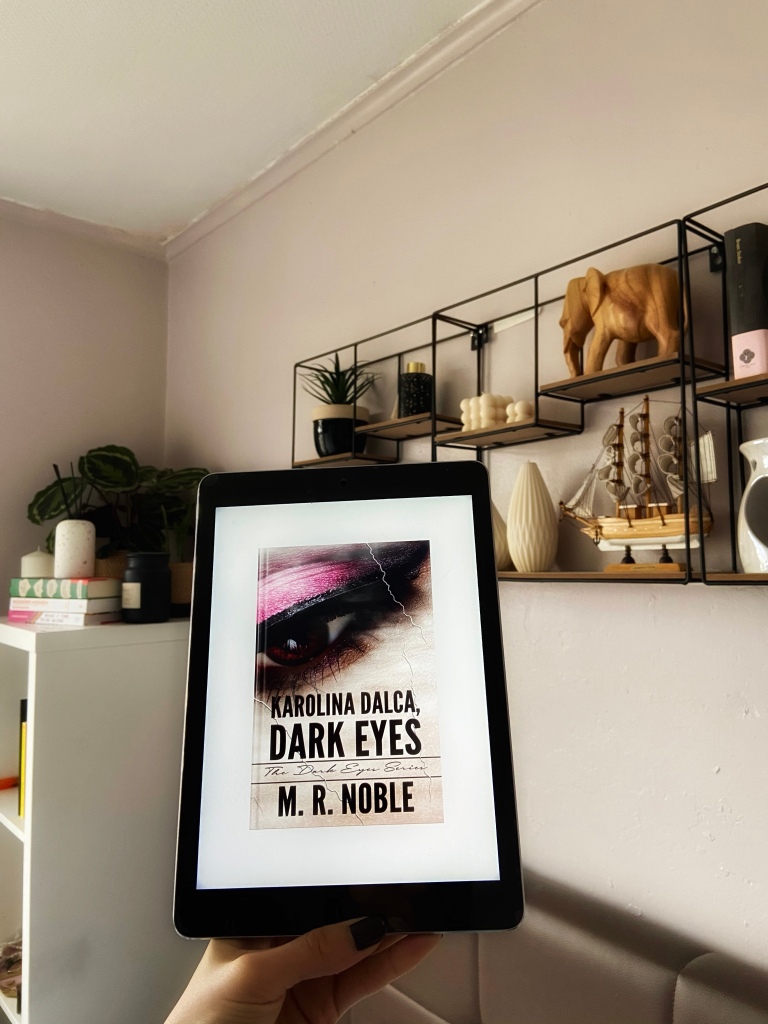
I’m only a few pages into Karolina Dalca Dark Eyes by M. R Noble and I already know I’m not the target audience for this book. I am however someone who hates leaving books unread so I will continue reading and hope for the best! Who knows, I might re-live my Edward and Jacob fantasy…
The story follows a half-vampire called Karolina Dalca. From the start of the book, Karolina’s life is fast-paced with all sorts going on. The first incident is losing her mother in a house fire, closely followed by fighting two vampires, then sleeping with her long term friend who is a werewolf to being captured by another vampire.
I like reading fast-paced books. Books that are filled with events, but these events need to naturally flow into one another. Here, there is a sense of something tragic or unexpected happening but before the reader can digest this, something new happens. It feels like the reader is all over the place and the reading feels rushed.
The concept of the book is interesting. What drew me to the book was the vampire vs werewolf storyline. Even though this isn’t a new take in this genre I like how the author added a cultural touch. From the start, we know that Karolina has a Romanian heritage from her mothers’ side and Russian from her fathers. It’s clear that Noble wants the readers to feel the presence of the two heritages as they are referenced often.
Like many storylines this too has a werewolf and vampire lover dilemma. Our girl Karolina has a love affair with both Ramon and Andre. Just like my Twilight days though I have sided with the vampire. There is just something hot and cold about vampires that keeps me engaged, whereas werewolves are hot and always available. Can you tell I have attachment issues with unavailable guys?!
For all of her life Karolina’s mother kept her father’s side a secret. We learn that this was for good reason as when Karolina meets her uncle, Loukin, he sets her up with their life-long enemy Kazimir. Spoiler alert: in the end it is Karolina who defeats Kazimir.
As you can tell I didn’t really enjoy this book. This is the first time I’ve written a negative review and I won’t lie it feels kind of weird. I once saw that authors like constructive criticism but I’ve checked Noble out online and she does not need my criticism ahah! The book has 4.28 stars on Goodreads so it’s my word against 3120 ratings :)))))
